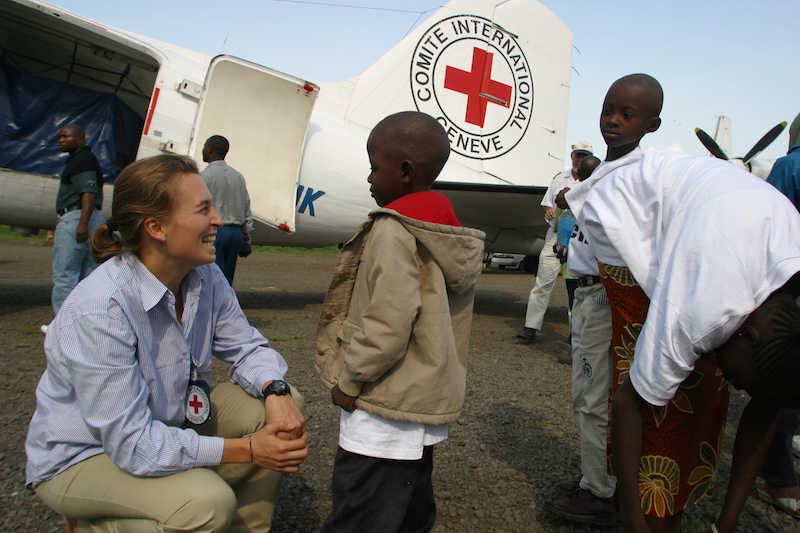For the past year, in my role at Watchlist, I have researched the impact on children of armed attacks on health care services, facilities or personnel in Afghanistan and Yemen. From my research in Afghanistan—including interviews with humanitarian actors, health workers, patients, and community shura (council) members—we found that in the past two years, parties to the conflict have carried out more than 240 attacks on health care ranging from threats, extortion, detention, abduction and killing of medical personnel to forced closure, damage or destruction, looting, and occupation of medical facilities. The Taliban and other armed opposition groups (e.g., the Islamic State in Iraq and the Levant-Khorasan Province) were responsible for the majority of incidents; however, government forces perpetrated about 20% of the attacks.
The recommendations in the report primarily focus on two interrelated thematic aims—better data collection of attacks, and accountability for perpetrators of attacks, with the hope that more information will lead to better accountability and prevent attacks. However, following the report’s publication, I have been asked multiple times by both journalists and humanitarian workers, “Do you want accountability or access to health care?”
So much of health care service provision and delivery of humanitarian aid is contingent upon ongoing negotiations between government officials, members of armed forces, the organizations providing services, community leaders, and members of armed opposition groups.
This question brings us to the ongoing debate regarding whether or how human rights activists or educators should try and understand or collaborate with state officials who violate human rights. So much of health care service provision and delivery of humanitarian aid in Afghanistan, Yemen, and many other countries is contingent upon ongoing negotiations between government officials, members of armed forces, the organizations providing services, community leaders, and members of armed opposition groups. Human rights activists broadly defined, for example staff members of the International Committee of the Red Cross (ICRC) who work to uphold international humanitarian law and human rights law in situations of armed conflict, have also been key mediators in many of these negotiations.
Understanding and collaboration is inherent in negotiation—it’s essential to listen to opposing viewpoints and determine how different parties can reach a mutually agreed upon plan that allows civilians access to health care. And, as some advocates pointed out to me, demanding justice above all else can put this access at risk. “Talking about accountability has a way of keeping people from sitting together at the table,” a humanitarian worker stated. “It’s not unimportant, but at the end of the day access is what matters.”

Flickr/International Committee of the Red Cross (Some rights reserved)
“Talking about accountability has a way of keeping people from sitting together at the table,” a humanitarian worker stated. “It’s not unimportant, but at the end of the day access is what matters.”
Perhaps the question is not whether human rights activists or educators should or should not try to understand or collaborate with state officials who violate rights, but instead what forms of understanding and collaboration will best safeguard civilians’ rights to critical lifesaving services. After all, understanding is not synonymous with condoning, nor is collaboration with enabling. In this way, we might consider the distinct, even complementary roles different human rights activists and educators can play, as well as the different opportunities and challenges between humanitarian and human rights work. Both endeavor to prevent (and protect against) the violation of rights. However, for humanitarian workers, doing so involves ensuring continued access to essential lifesaving services; for human rights workers, their mandate is arguably broader and includes working towards access, but also seeking redress for acts of omission and commission where access is denied.
Would more emphasis on prevention, through prosecution, eliminate the need for negotiations in the long term? It’s hard to say. To know for sure would be to know what makes lasting changes to the behavior of human rights violators and to the contexts that allow for widespread violation of rights. Whether such knowledge is even possible is a critical question, though like the matter at hand, insight has remained elusive. While beyond the scope of this essay, liberal institutionalism, a main paradigm of both understanding and action, posits that rights-respecting regimes will multiply with the establishment, in countries throughout the world, of democratic institutions. Yet the expanse of protracted conflict and subsequently mass violations of rights begun in the 1990s has threatened to upend this approach.
When it comes to addressing the issue of armed attacks on health care and subsequent denial of civilians’ right to health care, staff members with ICRC and other humanitarian organizations might negotiate, while those with Watchlist and other human rights and advocacy organizations might document and make calls for accountability. Both require understanding and collaboration with rights violators—state officials and in many cases non-state armed groups. The difference is in degree rather than kind.
